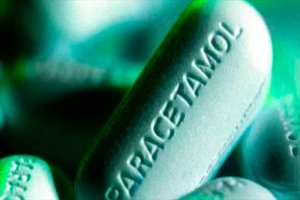- Home
- Editorial
- News
- Practice Guidelines
- Anesthesiology Guidelines
- Cancer Guidelines
- Cardiac Sciences Guidelines
- Critical Care Guidelines
- Dentistry Guidelines
- Dermatology Guidelines
- Diabetes and Endo Guidelines
- Diagnostics Guidelines
- ENT Guidelines
- Featured Practice Guidelines
- Gastroenterology Guidelines
- Geriatrics Guidelines
- Medicine Guidelines
- Nephrology Guidelines
- Neurosciences Guidelines
- Obs and Gynae Guidelines
- Ophthalmology Guidelines
- Orthopaedics Guidelines
- Paediatrics Guidelines
- Psychiatry Guidelines
- Pulmonology Guidelines
- Radiology Guidelines
- Surgery Guidelines
- Urology Guidelines
Use paracetamol to relieve a sore throat instead of antibiotics , says NICE

According to guidance by NICE and Public Health England majority of sore throats do not need antibiotics and medicated lozenges may only help to reduce pain by a small amount.The clinicians may rather use Paracetamol or ibuprofen to relieve a sore throat according to new guidance.
Respiratory tract infections are one of the main reasons people visit their GP, or seek help from a pharmacist. Around 1 in 4 (27%) GP appointments made for respiratory tract infections in the UK are because of a sore throat.
Evidence reviewed by NICE found most people will get better without antibiotics, usually experiencing symptoms for up to a week. However, research suggests antibiotics are prescribed in 60% of cases.
NICE says healthcare professionals shouldn’t prescribe antibiotics. Instead they should help people to manage their symptoms with pain relief, such as paracetamol or ibuprofen.
The guideline notes that some adults may wish to try medicated lozenges containing either a local anaesthetic, a non-steroidal anti-inflammatory drug (NSAID) or an antiseptic. However, they should be told these may only help to reduce pain by a small amount.
Dr Tessa Lewis, GP and chair of the managing common infections guidance committee, said: “Paracetamol can help to relieve pain and control temperature. Medicated lozenges might not reduce the pain by much, but some people may choose to use them.”
People who have a sore throat caused by bacteria, sometimes referred to as ‘strep-throat’, are more likely to benefit from antibiotics.
Two symptom scoring tools (FeverPAIN and Centor) that healthcare professionals can use to better identify when someone has strep-throat are highlighted in the guidance.
Professor Gillian Leng, deputy chief executive at NICE, said: “The evidence shows antibiotics are not an effective treatment for the majority of sore throats. People who need them should be given them, and our advice will support those decisions. But it is clear that routine prescribing in all cases isn’t appropriate.
“We are living in a world where bacteria are becoming resistant to antibiotics. It is vital these medicines are protected, and only used when they are effective.”The evidence shows antibiotics are not an effective treatment for the majority of sore throats. People who need them should be given them, and our advice will support those decisions.
Dr Tessa LewisGillian LengibuprofenNICENICE and Public Health England majoritynon-steroidal anti-inflammatory drugparacetamolrespiratory tract infectionsSore throat
Next Story
NO DATA FOUND

Disclaimer: This site is primarily intended for healthcare professionals. Any content/information on this website does not replace the advice of medical and/or health professionals and should not be construed as medical/diagnostic advice/endorsement or prescription. Use of this site is subject to our terms of use, privacy policy, advertisement policy. © 2020 Minerva Medical Treatment Pvt Ltd